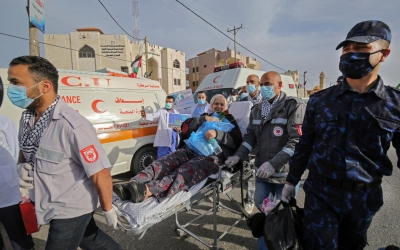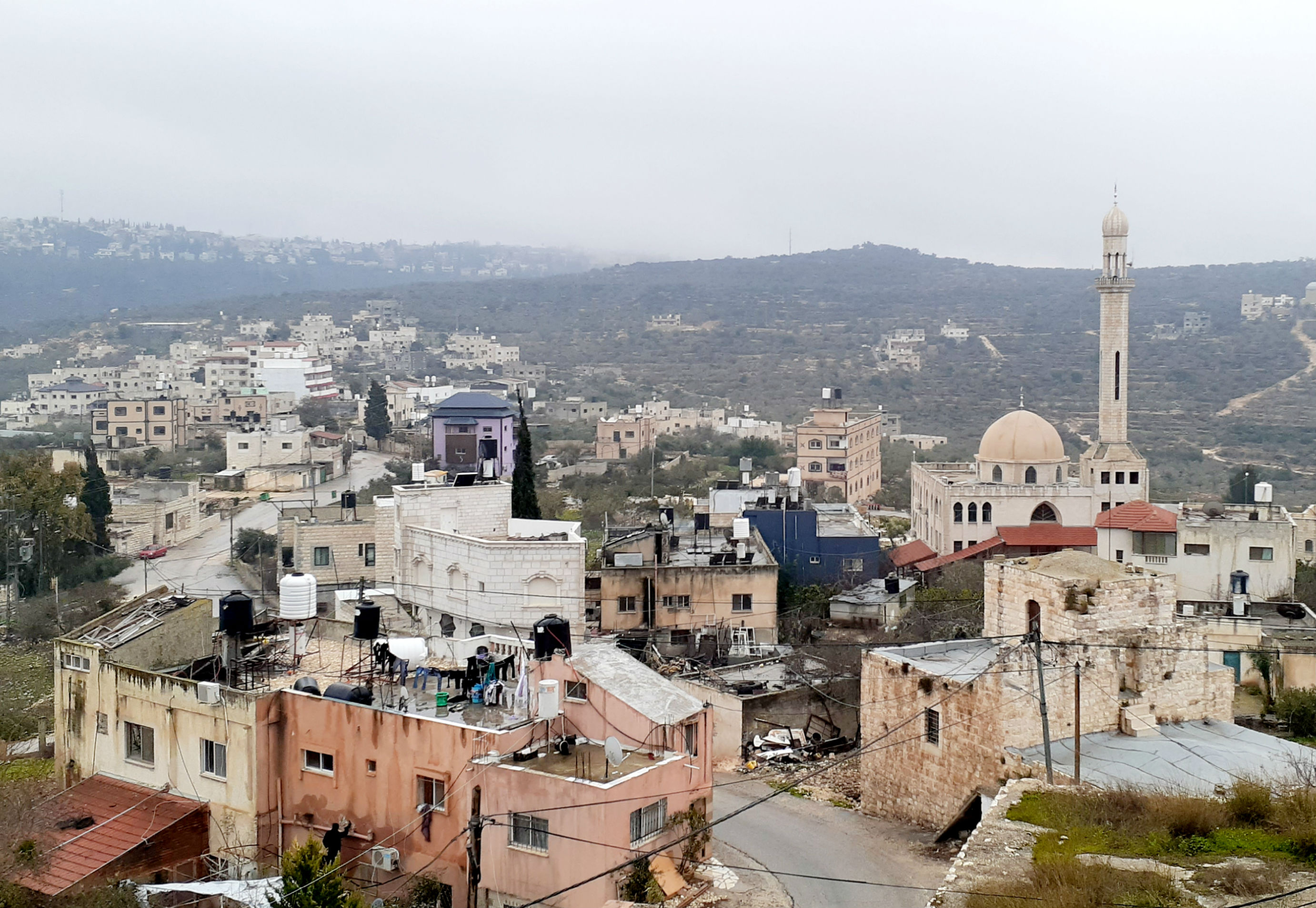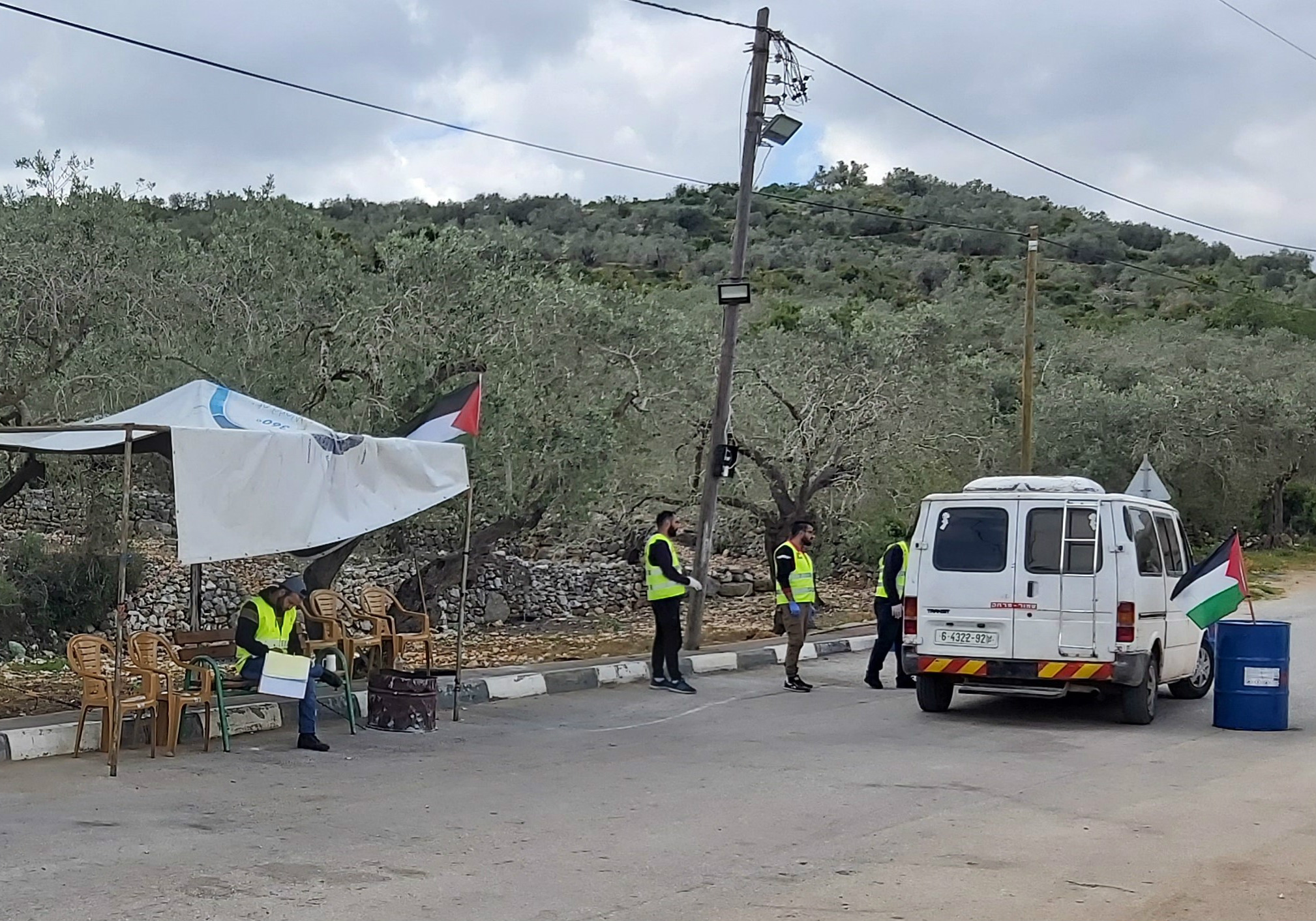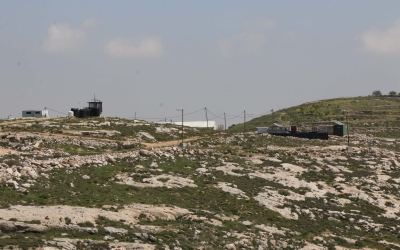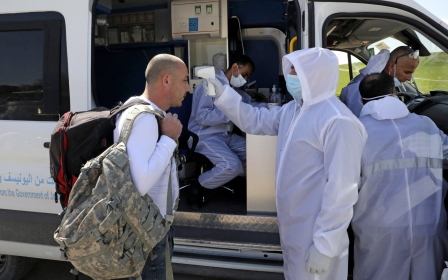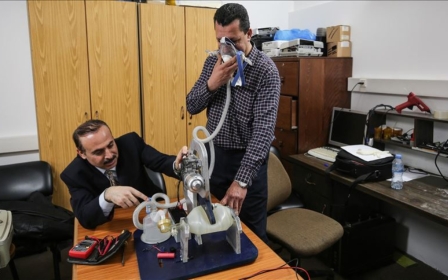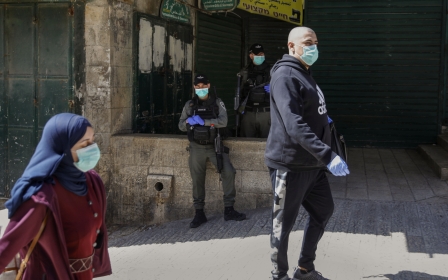Coronavirus: For Palestinians, solidarity amid pandemic invokes spirit of the intifada
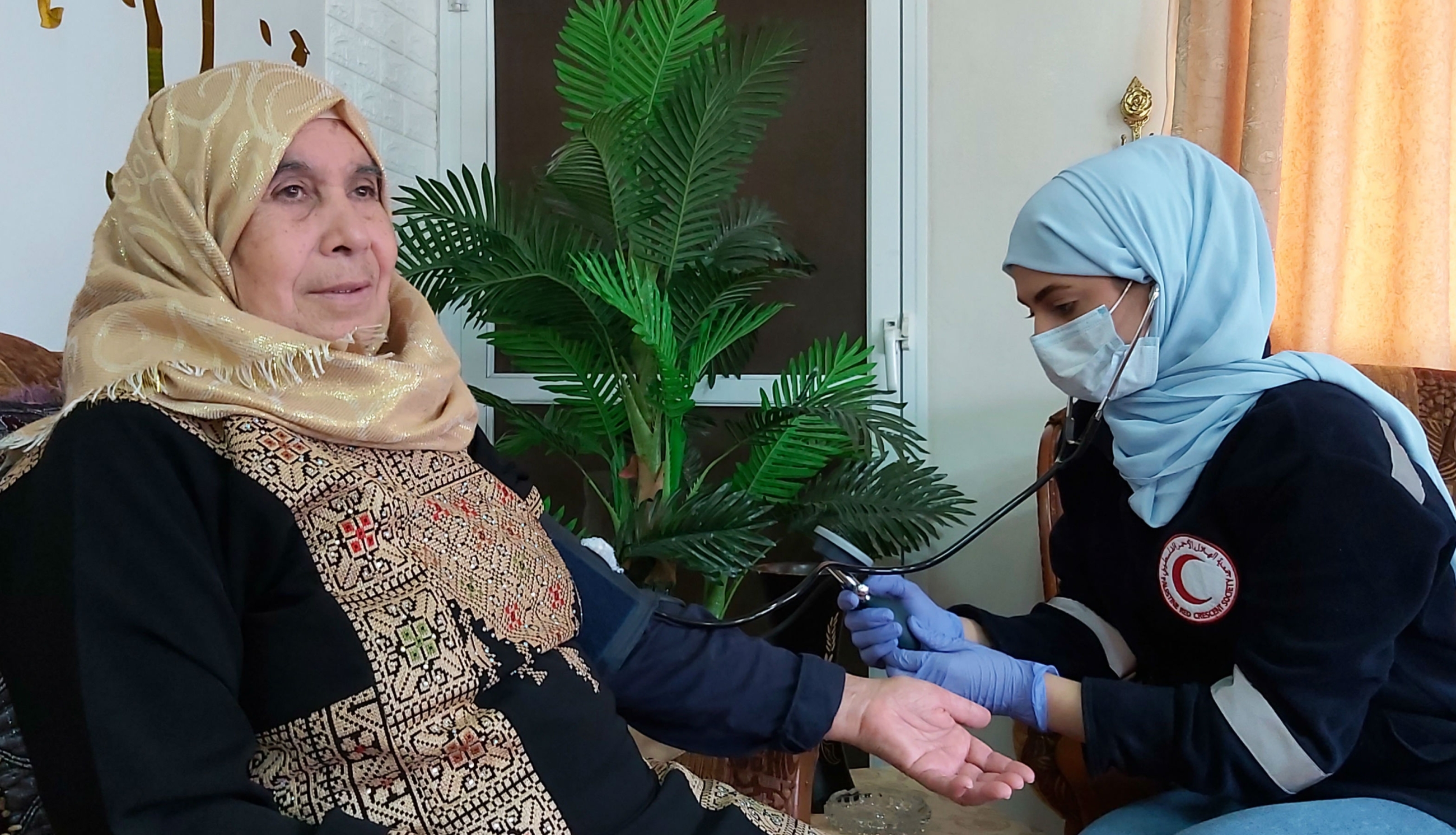
"I can't recall a difficult period in which our people didn't stand together," said Sami Mohammad.
The Palestinian has witnessed many historic events in his 73 years of life, and the current coronavirus pandemic sweeping across the world has brought back memories of previous times of hardship and community cohesiveness, notably during the popular Palestinian uprising known as the intifada from 1987 to 1993.
"The social solidarity we witness nowadays due to the corona pandemic reminds me of the First Intifada when Palestinians were united to resist the other heavy virus," the former political prisoner said, alluding to the Israeli occupation.
Since the start of the pandemic, governments around the world have battled to persuade people to stay at home and have harnessed their economic capabilities and security forces to impose restrictions.
But in the occupied Palestinian territories, the situation is very different. While the Palestinian Authority (PA), which administers the occupied West Bank, is required to confront the coronavirus firmly, the Israeli occupation means it lacks many of the tools and the agency other states take for granted.
According to the 1993 Oslo Accords, the West Bank is divided into three areas: Area A, under Palestinian Authority (PA) security and civil control; Area B, where the PA has civilian rule but security remains controlled by Israel; and Area C, which is under full Israeli civil and military control and includes the highly strategic Jordan Valley.
But the accords, whose parameters are often flouted by Israeli forces, leave the PA unable to control security in large areas of the West Bank and unable to properly control its borders.
Despite the difficulties, however, the ongoing crisis has inspired cooperation among all Palestinians, especially in rural areas, ranging from political activists to the private sector.
Community groups
The state of emergency declared in Palestine on 5 March has also exposed the modest economic and medical capabilities of the PA as it attempts to tackle the disease.
Stepping into the breach to fill these gaps, Palestinians have exhibited increasing social solidarity as they volunteer for roles and create community groups to support Palestinian security forces and medical teams in fighting the virus.
Despite the fact that we've become a consumerist community, our selflessness and generosity still exist
- Sami Mohammad, former political prisoner
Many farmers have donated vegetables to infected areas, large stores in cities have published lists of goods they have at low prices, while some shops have written off the debts of some of their more vulnerable customers.
Meanwhile, NGOs have introduced mechanisms that guarantee the arrival of basic materials to citizens either from donations or by directly linking farmers to consumers in their homes at fair prices.
Mohammad was arrested in 1989 and spent three years in jail for organising popular committees in the village of Qira, located in the northern West Bank governorate of Salfit, and resisting the Israeli occupation.
He says that the cooperation he sees in Palestine today as a result of the coronavirus is very similar to what happened during the First Intifada, especially the number of donations and the spirit of solidarity among the people.
"Usually humans show their good side during crises and in times of need. Despite the fact that we've become a consumerist community, our selflessness and generosity still exist," he told Middle East Eye.
Exceeding expectations
Emergency committees in all Palestinian communities were hastily set up by the PA to implement its plans and measures in the face of its limited financial and medical capabilities.
In Qira, an emergency committee was established, headed by Aisha Nimer in her capacity as mayor.
Consisting of 10 people, it represents the village council, the political factions, the medical teams and the security services.
The committee coordinates the work of dozens of volunteers assigned to specialised sub-committees.
Nimar told MEE that all activities are carried out voluntarily by the estimated 1,400 residents of the village and funded by an emergency fund established three weeks ago to collect donations from the local residents.
She added that more than 100 food packages and about 500kg of bread were distributed to families in need, and more than $4,000 have been raised so far.
"The most important thing is to realise that we are capable of maintaining our self-sufficiency, and that the people's responses exceeded our expectations," she said.
'Beautiful thing'
The emergency committee has set up watching points at the entrance to Qira called "community checkpoints" - in order to distinguish them from the notorious Israeli army checkpoints - which operate around the clock to prevent entry to those who are not authorised.
"We are carrying out a national duty because we protect our village and our people," Malik Taleeb, who is responsible for the watching points, said, explaining the community checkpoints were being manned by 42 young residents carrying out the role in shifts.
The watching points are similar to watching committees that were organised to prevent Israeli settlers from entering the village during the First Intifada.
The Palestinian people are used to being at home under curfews and closures due to the long years of occupation
- Ghanem Arabasi, former political prisoner
Ghanem Arabasi, a member of the emergency committee and another former political prisoner, believes that "the occupation and the coronavirus are two sides of the same coin".
"The solidarity we are experiencing today is very similar to the first and second intifadas, as the Palestinian people are used to being at home under curfews and closures due to the long years of occupation," Arabasi told MEE.
"The beautiful thing about this ordeal is that it made all people equal, it broke down barriers and brought back love and closeness to people's hearts."
Mobile health clinic
A health sub-committee was established in Qira which includes nurses and Palestine Red Crescent volunteers - first responders who provide primary health services for the elderly and those in need, as well as monitor those confined at home under quarantine.
Volunteers started a mobile health clinic to "monitor the situation of quarantined people, assist people with injections, measure their temperatures and check their blood pressure, namely whatever will save people a trip to the hospital," said volunteer nurse Yasmeen Mahmood as she measured the blood pressure of an elderly woman.
A logistics sub-committee recruited volunteers to deliver food packages, clean the village, sanitise public places, carry out deliveries to people in self-isolation or quarantine, and drive patients to hospitals.
In order to achieve food self-sufficiency, the village council allocated a five-dunum (4,500 square metres) plot to grow vegetables.
An agricultural sub-committee was established to plant 7,000 seedlings of summer vegetables funded by local donors. The produce will be given out for free to families in need.
'Two separate worlds'
A special team was assigned to track the return of Palestinians working in Israel, as the back and forth between both territories has been deemed a risk factor in spreading the virus.
The team is responsible for transferring workers to quarantine centres in a special car, as well as providing them with necessary instructions.
"Three houses in the village were allocated for home quarantine," said Nimer. "At this moment we have 24 workers in home quarantine and another 43 are expected to arrive in the next few days."
The fate of workers is but one aspect of Palestinian life making the fight against the pandemic that much harder.
"We face two main challenges: a lack of financial resources and the Israeli occupation," said Nimer.
"Israeli authorities pressure workers in settlements by threatening to withdraw their work permits if they don't go back to work in the Israeli factories.
"A few days ago, the settlers attacked the nearby village of Hares, forcing its residents to break their home quarantine in order to confront them.
"The Israeli army set up a checkpoint at the main entrance to the village but didn't provide any assistance.
"Here we live among illegal Israeli settlements, where settlers live normally, while we live in home quarantine which gives them the advantage to attack our communities, creating the feeling of living in two separate worlds, even though we live in the same area."
This article is available in French on Middle East Eye French edition.
Middle East Eye delivers independent and unrivalled coverage and analysis of the Middle East, North Africa and beyond. To learn more about republishing this content and the associated fees, please fill out this form. More about MEE can be found here.


